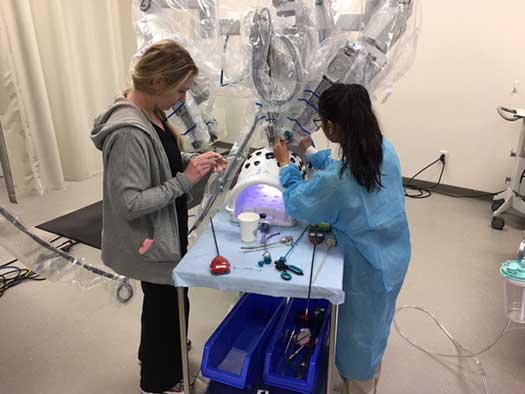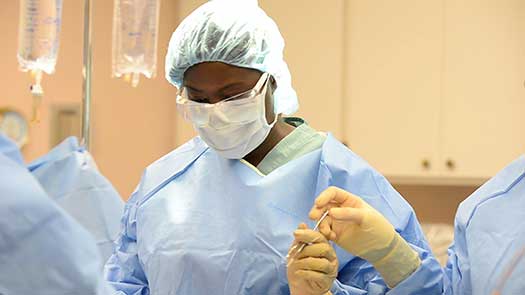
Master of Surgical Assisting
Join the rapidly growing field of surgical assisting with a degree from EVMS in the only master's level SA program of its kind in the country.
Master of Surgical Assisting
Learn more about the program.
Meet with a program representative.
Thank you
Why choose EVMS?
100% pass rate
For more than 20 years, our students have achieved a 100% pass rate on certification exams.
100% job placement
All EVMS Surgical Assisting students have job offers prior to graduation.
3 times more cases
Our average student completes more than three times the number of cases required by the accreditation body.
What sets EVMS apart?
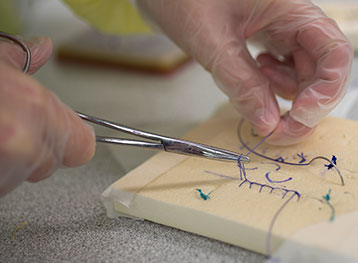
Cutting-edge techniques & facilities
Our program provides training in minimally invasive surgery and in surgical applications including robotics.
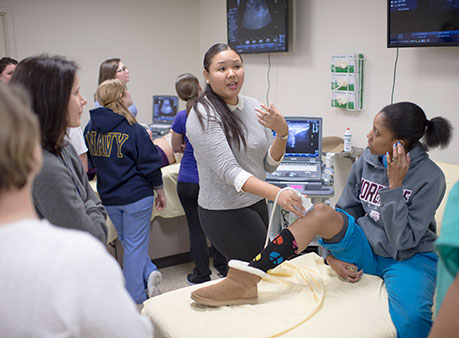
Training future leaders
EVMS students take part in leadership training to help them advance and broaden their career options.
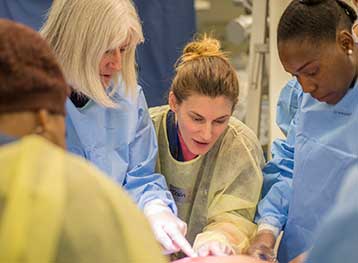
Junior resident equivalency
Our graduates enter the workforce with the same level of experience as junior surgical residents.

Cutting-edge techniques & facilities
Our program provides training in minimally invasive surgery and in surgical applications including robotics.

Training future leaders
EVMS students take part in leadership training to help them advance and broaden their career options.

Junior resident equivalency
Our graduates enter the workforce with the same level of experience as junior surgical residents.

Cutting-edge techniques & facilities
Our program provides training in minimally invasive surgery and in surgical applications including robotics.

Training future leaders
EVMS students take part in leadership training to help them advance and broaden their career options.

Junior resident equivalency
Our graduates enter the workforce with the same level of experience as junior surgical residents.
Ready to become a surgical assistant?
Effective Jan. 1, 2018, the Bureau of Labor Statistics recognizes Surgical Assistant as a distinct profession, a decision that could positively impact working SAs.
Looking to hire one of our Surgical Assisting students? Are you a health adviser seeking more information? Find out more.

